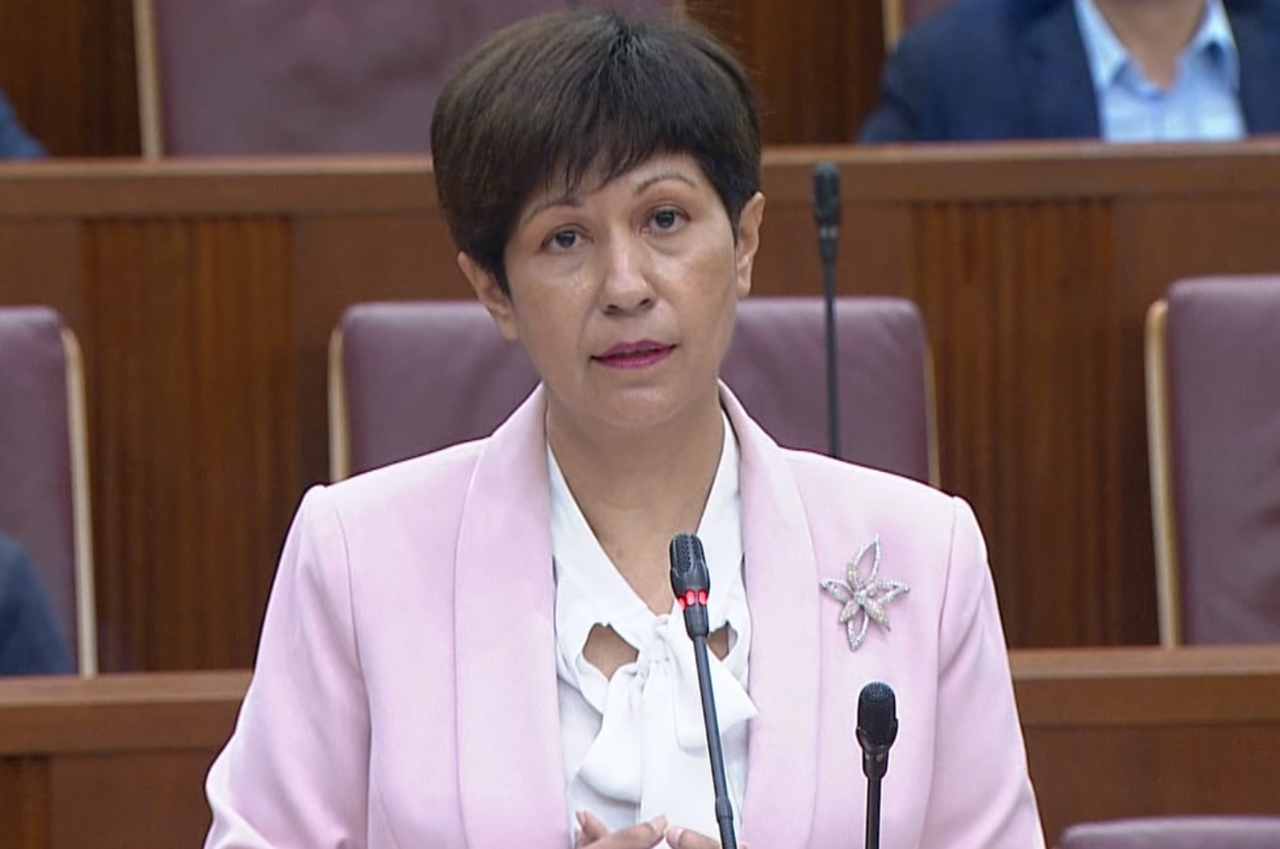S'pore will continue to review wealth tax; seeks balance in ways to supplement revenue: Indranee
Sign up now: Get ST's newsletters delivered to your inbox

Second Minister for Finance Indranee Rajah noted that tax rates cannot be discounted completely, and pointed out that wealth and talent are mobile.
PHOTO: MCI
Follow topic:
SINGAPORE - Singapore will continue to review wealth tax, Second Minister for Finance Indranee Rajah said in Parliament on Monday (Nov 1), noting that the Republic constantly looks for ways to supplement its revenue, seeking to do so in a manner that strikes the right balance.
She stressed that the question has never been one of whether the country wants to tax wealth, but the practical concern has been how to do so effectively so that such taxes cannot be avoided easily.
Ms Indranee was replying to Workers' Party MP Jamus Lim (Sengkang GRC), who had filed a motion on taxation for a dynamic and fair 21st century economy.
In his speech, Associate Professor Lim spoke about wealth taxes and suggested introducing a tax of between 0.5 per cent to 2 per cent on those with net wealth in excess of $10 million.
He also suggested that Singapore needs to disengage from the notion that low taxes offer the most competitive advantage for Singapore's status as a financial centre.
In reply, the minister said that tax rates cannot be discounted completely, and pointed out that wealth and talent - both Singaporean as well as foreign - are mobile.
"We have to tax in a way that is competitive, and allows people and companies to generate revenue in order to encourage them to stay here, and that revenue can be used and allocated and redistributed," Ms Indranee said.
She noted that Singapore has continually been raising and enhancing the progressivity of its income taxes. It also taxes wealth and has been raising asset-related taxes such as property tax, stamp duty and additional registration fees, for higher-end cars or residential property.
What matters, she said, is not having more types of wealth taxes, but having tax policies that work in the context of each jurisdiction.
For example, Switzerland has a net wealth tax, estate duty and property-related tax, and its wealth tax revenue is about 1.9 per cent of gross domestic product (GDP). This is comparable with Singapore's wealth tax revenue at about 1.8 per cent of its GDP, she said.
In her speech, she said that Singapore has one of the most progressive systems of taxes and transfers in the world, which not only raises revenue but also keeps the economy dynamic, builds an inclusive society and enables a greener future.
Almost half of the country's workers do not need to pay any personal income tax, and of those who pay, the top 10 per cent of individuals account for about 80 per cent of total revenue, she pointed out.
"When we consider the entire system of taxes and transfers, for every dollar of tax a Singaporean household around the middle pays, they will receive around twice the amount in benefits. Lower-income households receive even more - about $4 in benefits for every dollar paid," Ms Indranee explained.
Noting how Prof Lim and the Workers' Party have said that the goods and services tax affects the lower and middle-income disproportionately more, she stressed that Singapore's GST system is designed in a way that is tilted in favour of helping the lower and middle-income groups.
This includes setting aside a $6 billion Assurance Package to cushion the eventual GST hike from 7 per cent to 9 per cent that is expected to take effect by 2025, as well as the GST voucher system.
Ms Indranee said that Singapore is continuously reviewing its tax system not only to address current needs, but also future challenges, outlining the three most pressing structural challenges that lie ahead.
First, Singapore has a rapidly ageing population and the country can expect government healthcare spending to rise significantly from 2.2 per cent of GDP in 2019 to 3 per cent by 2030.
Second, it must redouble its efforts to make sustainable investments to green its economy and mitigate the impact of climate change.
Thirdly, it needs to renew its social compact, which means more investments to reduce inequality and promote social mobility, through means such as building more pre-schools and improving opportunities for lifelong education.
However, even as the country's structural spending needs to continue to increase, its revenue streams are becoming increasingly uncertain, and this means that it cannot stick to the status quo, Ms Indranee said.
"But whatever we do must strike the right balance among raising sufficient revenue, maintaining competitiveness and progressivity, and being sustainable."

